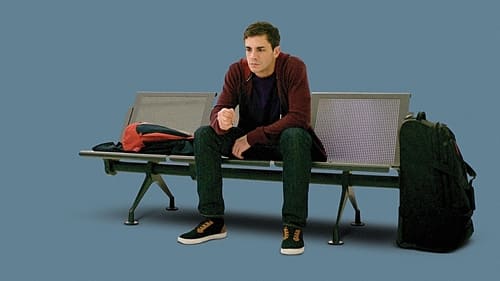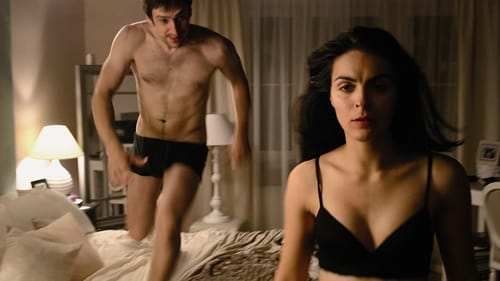
Writer
보스니아 어느 가족의 이야기로 부모는 아들이 비뚤어질까 걱정하고, 아들은 말썽을 부리지만 악의가 있는 건 아니다. 아버지와 어머니, 동생 모두 각자 입장에서 최선을 다하려 하지만 가족의 화합은 쉽지않다.

Director
보스니아 어느 가족의 이야기로 부모는 아들이 비뚤어질까 걱정하고, 아들은 말썽을 부리지만 악의가 있는 건 아니다. 아버지와 어머니, 동생 모두 각자 입장에서 최선을 다하려 하지만 가족의 화합은 쉽지않다.

Screenplay
Family Susic lives everyday Bosnian story. Father Muhamed (63) is employed in a reputable company; mother Marija (60) is retired. Son Sasa (35), who spent the war in Army of Bosnia and Herzegovina, lives with his parents, while their daughter Senada (40) lives in Slovenia. Their life begins to fall apart because of father's dissatisfaction after his company is sold on the stock exchange, Sasa's negligent attitude towards work and family, Marija's breast cancer diagnose. When problems begin to line up Muhamed and Sasa realize that actually only family is important, that it is man's last oasis

Director
Family Susic lives everyday Bosnian story. Father Muhamed (63) is employed in a reputable company; mother Marija (60) is retired. Son Sasa (35), who spent the war in Army of Bosnia and Herzegovina, lives with his parents, while their daughter Senada (40) lives in Slovenia. Their life begins to fall apart because of father's dissatisfaction after his company is sold on the stock exchange, Sasa's negligent attitude towards work and family, Marija's breast cancer diagnose. When problems begin to line up Muhamed and Sasa realize that actually only family is important, that it is man's last oasis

Writer
Nearly 20 years since the end of the 1992-95 Bosnian war, there are people who still live in refugee Centers, usually located on the outskirts of cities and villages. In such centers what should have been temporary has become indefinite. Collecting medicinal herbs or scraps from nearby coal mines and raising children who were born as refugees in their own country are just some aspects of the monotonous daily life of the people in Ježevci.

Director
Nearly 20 years since the end of the 1992-95 Bosnian war, there are people who still live in refugee Centers, usually located on the outskirts of cities and villages. In such centers what should have been temporary has become indefinite. Collecting medicinal herbs or scraps from nearby coal mines and raising children who were born as refugees in their own country are just some aspects of the monotonous daily life of the people in Ježevci.

Writer
The film is a high-concept project with five stories exploring the themes of motherhood and pregnancy, directed by women filmmakers from five former Yugoslav republics. “Croatian Story” follows an anguished painter who must decide whether or not to keep one of her unborn twins, diagnosed with Down syndrome. “Serbian Story” finds an expectant mother in the same emergency room with a charming killer. “Bosnia-Herzegovina Story” centers on a financially strapped Sarajevo family whose son?s lover is pregnant. “Macedonian Story” unfolds in a clinic where a drug addict struggles to keep her baby, and “Slovenian Story” ends the omnibus on a humorous note with a nun who finds her own way to immaculate conception.

Director
The film is a high-concept project with five stories exploring the themes of motherhood and pregnancy, directed by women filmmakers from five former Yugoslav republics. “Croatian Story” follows an anguished painter who must decide whether or not to keep one of her unborn twins, diagnosed with Down syndrome. “Serbian Story” finds an expectant mother in the same emergency room with a charming killer. “Bosnia-Herzegovina Story” centers on a financially strapped Sarajevo family whose son?s lover is pregnant. “Macedonian Story” unfolds in a clinic where a drug addict struggles to keep her baby, and “Slovenian Story” ends the omnibus on a humorous note with a nun who finds her own way to immaculate conception.

Director
In august 2010, during the repair of the turbines of the hydroelectric power plant Bajina Bašta, body remains of more than 250 incomplete skeletons were found in the mud of the artificial lake Perućac; the remains belong mostly to the Bosniaks killed by members of the army of Republika Srpska in Višegrad and its surrounding area in the period of 1992/95.

Writer
In august 2010, during the repair of the turbines of the hydroelectric power plant Bajina Bašta, body remains of more than 250 incomplete skeletons were found in the mud of the artificial lake Perućac; the remains belong mostly to the Bosniaks killed by members of the army of Republika Srpska in Višegrad and its surrounding area in the period of 1992/95.









